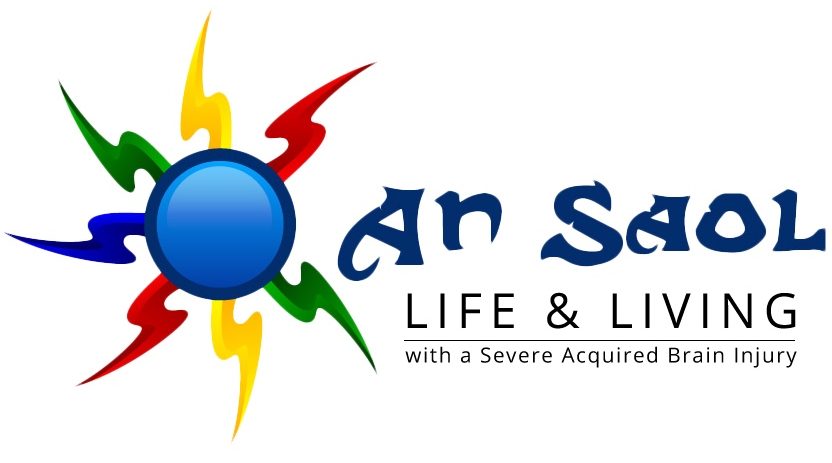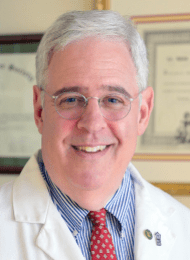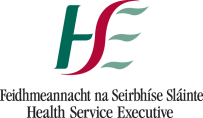Leave No One Behind
09 – 14 May 2022
online – hybrid – in-person (limited attendance)
#sABISummerSchool
“However careful we are, and however slim the odds, a severe brain injury is something that can happen to anyone, and any family,
at any time.”
Welcome
The United Nation’s 2030 Agenda for Sustainable Development pledges to “Leave No One Behind”. It is an ambitious plan of action of the international community towards a peaceful and prosperous world, where the dignity of an individual person and equality among all is applied as the fundamental principle.
We believe, as stated by the UN, that it is critical to ensure the full and equal participation of persons with disabilities in all spheres of society and create enabling environments by, for and with persons with disabilities – including the so-called ‘hopeless cases’, including those with a severe Acquired Brain Injury (sABI) and their families.
The HSE’s “Model of Care (MOC) for the provision of Specialist Rehabilitation Services in Ireland” (November, 2017) stated that “Many community residential options for younger severely disabled people do not meet their unique needs where continuing slow functional recovery is possible many years after their injury”.
We have organised the 2022 International Summer School & Forum to raise awareness amongst medics and other professionals, but also amongst those directly or indirectly affected by a sABI, and the general public, that those with a sABI have very specific needs and that they have rights: rights to see their family, rights to take decisions, rights to appropriate rehab, rights to a decent life. Moreover, we will demonstrate that not only do these rights already exist, but they can be claimed and realised: claimed as shown by recent research into approaches to neurological rehabilitation and good governance; realised as shown by the Neurological Day Rehabilitation Centre, the pilot demonstrator supported by the HSE, recently implemented by the An Saol Foundation.
Word-leading international experts will highlight that it is not only our medical, ethical and legal obligation to care for those with a severe Acquired Brain Injury (sABI), to facilitate Life and Living with a sABI, but that there are very reasonable chances of a meaningful recovery and improvement given adequate rehabilitation treatment; that even persons in a state of unresponsive wakefulness have a right to ongoing, specialised treatment.
The An Saol Foundation launched its proposal for a three-year pilot project, involving the establishment of a Day Rehabilitation Centre, on 18 June 2016 in Dublin’s Lighthouse Cinema and the Distillery Building (Bar Council), with the support of Headway Ireland, ABI Ireland, the Clinical Director of the National Rehabilitation Hospital, and three international partners. The proposal was subsequently endorsed by the Minister of Health, Simon Harris, T.D., the Minister of State for Disability Issues, Finian McGrath, T.D., and supported by the Health Service Executive (HSE).
In early 2020, the An Saol Foundation opened its Day Rehabilitation Centre in Santry, Dublin, with the support of the HSE and has been seeing clients with a severe Acquired Brain Injury (sABI) and their families for more than two years. The Centre is now fully operational and offers physiotherapy, occupational therapy, speech and language therapy, robotic gait training, a social rehabilitation programme, and a family support programme.
Following the implementation of the demonstrator pilot project, the An Saol Foundation is planning to establish satellite centres across the country and to build a permanent space with community, day centre, respite and residential services.
We are very honoured that Prof. Joseph J. Fins, eminent author of the highly acclaimed book Rights Come to Mind – Brain Injury, Ethics and the Struggle for Consciousness, has agreed to give the Keynote at our opening session.
Today marks the beginning of the future for those with a severe Acquired Brain Injury (sABI) and their families.
From the Organisers
An Saol Foundation
It would be wrong to spend the very limited resources of the Irish health system on those with a severe Acquired Brain Injury (sABI) because they only have a small chance of a meaningful recovery. Our limited healthcare resources have to be prioritised for those with a good chance of recovery.
We have heard this argument many times and those with a sABI and their families are living its impact. There are no waiting lists for dedicated treatment and services for them – because, up to now, there simply were none.
The 1st International Summer School and Forum on Life and Living with a severe Acquired Brain Injury (sABI) – Leave No One Behind, will address the question why this big gap in service provision exists and how it can be closed, hearing from national and international world-leading experts, families and practitioners.
We very much welcome the collaboration of our partners and presenters, as well as our supporters and sponsors, who have made this event possible – despite very challenging circumstances.
Reinhard Schaler
CEO, An Saol Foundation
Venue
Because of the continued COVID 19 pandemic, the sessions of the 2022 Summer School will take place in a variety of formats:
- Online – Participants will join the session online (link will be distributed to registered participants)
- Hybrid – The presenter of the session will be present in person at the venue, together with An Saol staff. Other participants will join the session online (link will be distributed to registered participants)
- In-person – The presenter and all participants will attend in person. All in-person sessions, except for the closing session on Saturday morning, are, in principle, reserved for staff of the An Saol Foundation.
Registration
Please register here for the sessions you wish to attend.
Registration and participation at the Summer School are free of charge.
Programme
Monday, 09 May 2022
13:00 – 13:55 (online)
Official Opening and Keynote
Welcome to the 2022 Summer School
Reinhard Schäler, CEO, An Saol Foundation
Covert Consciousness and the Right to Care: Bringing Disability Rights to the Clinic
Professor Joseph J. Fins (Cornell and Yale), USA
Medical practitioners are seeing an ever-growing number of patients with severe Acquired Brain Injuries (sABI), some still in a Prolonged Disorder of Consciousness (PDOC). Suddenly, they find themselves confronted with very serious and life-changing medical, ethical and legal questions for which they are often ill-prepared. Professor Fins is a world-leading authority on sABI and author of the seminal book “Rights Come to Mind – Brain Injury, Ethics, and the Struggle for Consciousness”.
Recording of Prof. Fins’ presentation
________________________
09:00 – 17:30 (in-person)
Client Review
Bettina Quentin and Christiane Knorr
Tuesday, 10 May 2022
09:00 – 12:30 (in-person)
Client Review
Christiane Knorr and Bettina Quentin
________________________
13:00 – 13:55 (online)
The NAI’s Policy and Advocacy Landscape – Projects and Initiatives
Magdalen Rogers, Executive Director, Neurological Alliance of Ireland
Magdalen Rodgers will provide an overview of the work of the Neurological Alliance of Ireland (NAI) including current projects and an overview of the policy and advocacy landscape that NAI is working in. The NAI brings together over thirty non-profit organisations to advocate for the rights of 800,000 people in Ireland living with a neurological condition.
Recording of Magdalen Rodgers’ Presentation
________________________
14:00 – 14:55 (online)
The Nervous System and Therapeutic Exercise
Dr. Carlos Rodríguez López, Founding Director Sinapse, spain
With a highly specialised and trained team, Sinapse (Torrelavega, Spain) responds to their patients’ rehabilitation requirements by designing an “Individualised Rehabilitation Plan”. This is a specialised programme with intensive multi-disciplinary teamwork, offering patients the service of clinical excellence backed up by science that their situation requires. Sinapse combines the most advanced technology with years of clinical experience and research.
Recording of Dr Rodríguez López’ Presentation
________________________
15:00 – 15:45 (hybrid)
A Registry for sABI
Marion Rowland MB, PhD
No reliable, high quality epidemiological data is available in relation to sABI cases in Ireland. This makes the development of timely and targeted services for this population, as called for by several government and HSE strategy papers for many years, difficult. Marion Rowland proposes the development of a National Registry co-ordinated by the An Saol Foundation and supported by all stakeholders.
Recording of Dr Rowland’s Presentation
________________________
16:00 – 17:30 (in-person)
Client Review
Christiane Knorr and Bettina Quentin
Wednesday, 11 May 2022
09:00 – 12:30 (in-person)
Client Review
Christiane Knorr and Bettina Quentin
________________________
13:00 – 13:55 (online)
NeuroHope
Chris Leeuw, Founder and Executive Director, NeuroHope, USA
A story of recovery from spinal cord injury, the need for continued therapy and exercise for neurological conditions after hospital discharge, and the creation of NeuroHope in Indianapolis, Indiana, USA.
Recording of Chris Leeuw’s Presentation
________________________
14:00 – 15:00 (hybrid)
The DCU Exoskeleton Programme, Ireland
Ronan Langan, DCU Exoskeleton Programme, Ireland
DCU’s Exoskeleton Programme is a physiotherapist led service allowing persons with reduced mobility due to paralysis to access the Eksobionics exoskeleton, Ekso NR to allow them to complete sessions of supported walking facilitated by a trained handler. The programme aims to offer ongoing access to robotic walking for persons with spinal cord injury, stroke, multiple sclerosis and other neurological conditions. The programme has seen huge demand for access to this life changing technology and is seeking collaborators to join us in conducting research on how best to utilise the exoskeleton to deliver maximum benefits for users. The programme provides community dwelling persons of limited mobility access to further rehabilitation while they contribute to the growing knowledge in the rapidly developing field of robotics in neuro-rehabilitation. In the future, robotic applications for this population are expected to be commonplace and we expect robotic walking to become a standard of care for paralysis.
Recording of Ronan Langan’s Presentation
________________________
15:00 – 16:00 (in-person)
@DCU: In conversation with Ronan Langan
Participants will visit DCU’s Exoskeleton Programme facilities and discuss with Ronan the aims and objectives of the programme, as well questions around its implementation.
________________________
16:30 – 17:30 (in-person)
Client Review Session
Christiane Knorr and Bettina Quentin
Thursday, 12 May 2022
09:00 – 12:30 (in-person)
Client Review
Christiane Knorr and Bettina Quentin
________________________
13:00 – 13:55 (hybrid)
Cognitive Training Platforms
Carolyn Jones, Anatomical Concepts (UK) Ltd.
Carolyn will focus on the key benefits of computerised cognitive rehabilitation, and the questions we should ask when we select such tools to support clients with ABI. In particular, she will refer to RehaCom and reference a second application, Head App. Both are digital platforms for cognitive training and therapies, and practical tool that assists therapists in the rehabilitation of cognitive disorders affecting specific aspects of attention, concentration, memory, perception, activities of daily living and much more.
Recording of Carolyn Jones’ Presentation
________________________
14:00 – 14:30 (hybrid)
The Total Solution for Rehabilitation Robotics
Friday, 13 May 2022
09:00 – 12:30 (in-person)
Client Review
Christiane Knorr and Bettina Quentin
________________________
10:00 – 12:30 (in-person)
Client Review
Dr Michael Poschmann
________________________
13:00 – 13:55 (hybrid)
Percutaneous Fasciotomy and Brain Injury
Dr Michael Poschmann, Center for children’s and neuro-orthopaedics, Schön-Clinic, Munich, Germany
Along with their highly competent team, Dr Poschmann and his colleague Dr Bernius offer the entire range of conservative and surgical therapies for orthopaedic or neuro-orthopaedic diseases in children and adolescents at an international level at the Schön-Clinic Munich Harlaching, Centre for Paediatric and Neuro-Orthopaedics. The two chief physicians attach great importance to age-appropriate care – involving both children and parents in every step whenever possible.
Recording of Dr Poschmann’s Presentation
________________________
14:15 – 15:00 (in-person parallel session)
Client Review
Dr Michael Poschmann
________________________
14:15 – 17:30 (in-person parallel session)
Client Review
Christiane Knorr and Bettina Quentin
Saturday, 14 May 2022, 10:00 – 13:00 (in-person)
Closing Session at the An Saol Foundation, Santry. We invite colleagues and guests to attend in person. Please register in advance. A light lunch will be served.
09:45 Registration
10:00 Session 1
Management of Spastic Movement Disorder in Neurorehabilitation – An Update on National and International Guidelines
Professor Jörg Wissel, Berlin
Professor Wissel will discuss scientific reports on the effect of different approaches to the management of spasticity in patients with neurological conditions, including the use of Botulinum Toxin (“botox”), with reference to national and international guidelines.
Recording of Prof Wissel’s Presentation
10:50 Session 2
Therapiezentrum Burgau – Dedication and Challenges
Christiane Knorr
In 1987, the Augsburg entrepreneur Max Schuster passed an accident site. He recognises the scooter and finds his daughter seriously injured and lifeless. She is resuscitated and treated in intensive care. She survives despite severe craniocerebral injuries, but remains in a coma. Her doctors give her up. They believe her life has no meaning anyway. For them it is inconceivable that she would ever wake up, never mind return to a self-determined life.
But Max Schuster does not give up. For months he is looking for doctors and therapists who could help his daughter. And he finds them. What was still considered impossible in Germany at the end of the eighties was already practised in the USA and Switzerland: targeted rehabilitation for people with severe brain damage.
With holistic therapies and discontinuation of the sedatives, his daughter is making progress, which at the time was perceived as a miracle. Today, she takes part in life and lives largely independently in her own apartment in a supervised residential group.
The Burgau Therapy Centre has grown continuously from the smallest beginnings. In 1989 the supply of 20 beds started in one ward within the Burgau District Hospital – today, after extensive expansion measures, it is a regional focus centre with 111 beds and almost 500 employees.
Christiane Knorr’s Presentation
11:20 Session 3
Case Study: Rehabilitation of a Young TBI Survivor in a Multidisciplinary Rehabilitation Setting and at Home
Bettina Quentin
Bettina will report on her work with a young survivor of a traumatic brain injury (TBI) both in Russia and Germany and focus on her individual rehabilitation approach with this patient at home and with the family. She will also describe his treatment in a large rehabilitation hospital where she worked together with Prof. Wissel and a multidisciplinary team.
Bettina Quentin’s Presentation
11:50 Session 4
Intelligent Robots for Rehabilitation
Olive Lennon
More intelligent robots that can sense users’ intent to move, and can interpret how much help they need, can help restore movement and independence. Developments will increase human understanding of human and robot interaction and effects on brain and muscle function allowing more targeted, future interventions.
12:10 Session 5 – Panel
Life and Living with a severe Acquired Brain Injury (sABI) Panel
Reinhard Schäler (Chair)
During the closing session of the summer school, participants of the Summer School and invited guests will discuss what, in their opinion, will have to change in society and in the health system in order to facilitate Life and Living with a sABI.
[No recording of this discussion.]
13:00 Close of the 2022 Summer School, followed by a Light Lunch and Refreshements
Contributors
Reinhard Schaler
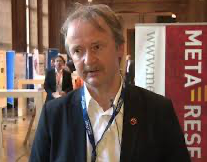 Reinhard Schaler was Programme Director of the MSc in Global Computing and Localisation and Director of the Localisation Research Centre at the University of Limerick. He led and participated in several European, national, and industry-funded multi-million euro research projects. Following the devastating accident of his son, he left his academic career to set up the An Saol Foundation in 2014 and subsequently launched the An Saol Project proposal in 2016. In 2020, the An Saol Foundation opened their Neurological Rehabilitation Day Centre in Santry, Dublin.
Reinhard Schaler was Programme Director of the MSc in Global Computing and Localisation and Director of the Localisation Research Centre at the University of Limerick. He led and participated in several European, national, and industry-funded multi-million euro research projects. Following the devastating accident of his son, he left his academic career to set up the An Saol Foundation in 2014 and subsequently launched the An Saol Project proposal in 2016. In 2020, the An Saol Foundation opened their Neurological Rehabilitation Day Centre in Santry, Dublin.
Professor Joseph J. Fins
Joseph J. Fins, MD, MACP, FRCP is The E. William Davis, Jr. M.D. Professor of Medical Ethics and Chief of the Division of Medical Ethics at Weill Cornell Medical College where he is a Tenured Professor of Medicine. He is the founding Chair of the Ethics Committee of New York-Presbyterian Weill Cornell Medical Center where he is an Attending Physician and Director of Medical Ethics. A member of the Adjunct Faculty of Rockefeller University and Senior Attending Physician at The Rockefeller University Hospital, he co-directs, the Consortium for the Advanced Study of Brain Injury (CASBI) at Weill Cornell Medicine and Rockefeller. In 2015, he was appointed the Solomon Center Distinguished Scholar in Medicine, Bioethics and the Law at Yale Law School and directs CASBI@YLS. He is currently a Visiting Professor of Law at Yale Law School in addition to his appointment at Weill Cornell Medicine. Dr. Fins is an elected Member of the National Academy of Medicine (formerly the Institute of Medicine) of the National Academies of Sciences, a Fellow of the American Academy of Arts and Sciences, and by Royal Appointment an Academico de Honor(Honored Academic) of the Real Academia Nacional de Medicina de España (the Royal National Academy of Medicine of Spain). In 2022, he was elected to the Association of American Physicians. He was appointed by President Clinton to The White House Commission on Complementary and Alternative Medicine Policy and currently serves on The New York State Task Force on Life and the Law by gubernatorial appointment. Dr. Fins is a graduate of Wesleyan University and Cornell University Medical College. (Click here for further details.)
Professor Jörg Wissel
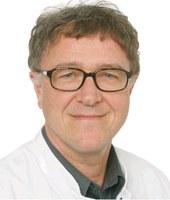
Prof. Jörg Wissel is a specialist in Neurorehabilitation, Movement Disorders & Botulinumtoxin treatment. He authored more than 125 original publications (researchgate >1750 citations) and is member of expert panels in Neuro-rehabilitation & Movement Disorders. Since 2012 he is head of Neurorehabilitation, Vivantes Hospital Spandau in Berlin and owner of own out-patient facility in . He is Prof. of Neurology and faculty member at Univ. of Innsbruck, Austria & University of Potsdam, Germany.
Magdalen Rogers
 Magdalen Rogers is the Executive Director with the Neurological Alliance of Ireland, the national umbrella of over 30 organisations working with people with neurological conditions.
Magdalen Rogers is the Executive Director with the Neurological Alliance of Ireland, the national umbrella of over 30 organisations working with people with neurological conditions.
She has both an undergraduate and Masters degree in psychology and her professional background has included working in clinical settings as part of a multidisciplinary team, management roles within the voluntary sector and within the Health Research Board.
Carlos Rodríguez López PhD
 Dr. Carlos Rodríguez López is a Physiotherapist with more than 22 years experience in the Neurorehabilitation field, Co-Founder and Clinical Director of Sinapse Neurología Center (A Coruña, Spain), Founding Director of Sinapse Neurological Rehabilitation Center (Torrelavega, Spain) and CEO of Mbody, which is a company involved in teaching courses and different research projects with the aim of highlight the relevance of peripheral features mainly in neurological conditions with a team of Physical Therapists, Occupational Therapists, Speech Therapists and Psychologists. Dr. Rodríguez works together with a highly specialised and trained team who responds to our patients’ rehabilitation requirements by designing an “Individualised Rehabilitation Plan”. This is a specialised programme with intensive multi-disciplinary teamwork, offering our patients clinical excellence, backed up by science, combining the most advanced technology with years of clinical experience.
Dr. Carlos Rodríguez López is a Physiotherapist with more than 22 years experience in the Neurorehabilitation field, Co-Founder and Clinical Director of Sinapse Neurología Center (A Coruña, Spain), Founding Director of Sinapse Neurological Rehabilitation Center (Torrelavega, Spain) and CEO of Mbody, which is a company involved in teaching courses and different research projects with the aim of highlight the relevance of peripheral features mainly in neurological conditions with a team of Physical Therapists, Occupational Therapists, Speech Therapists and Psychologists. Dr. Rodríguez works together with a highly specialised and trained team who responds to our patients’ rehabilitation requirements by designing an “Individualised Rehabilitation Plan”. This is a specialised programme with intensive multi-disciplinary teamwork, offering our patients clinical excellence, backed up by science, combining the most advanced technology with years of clinical experience.
Dr. Rodríguez has been teaching as a lecturer in the Physiotherapy faculty in “Escuela Universitaria Gimbernat” of Cantabria University (Spain) for 15 years and, since 2015, has directed the Programme Coordinator of the Neurologic Speciality as well as he has worked as a clinical advisor in different parts of Europe, such as Denmark and Finland, which has given him a global and transdisciplinary vision of work in Neurorehabilitation.
Dr. Rodríguez completed his PhD in 2017, focused on the mechanical adaptation of the median nerve in people after a stroke and, since then, has been the Director of Master thesis on the subjects above, collaborating with the main European Universities.
Dr. Rodríguez’s area of academic focus is in peripheral nerve physiology, pain, perception and exercise in neurological conditions, with a special interest on movement disorders both in the acute and chronic stage.
Marion Rowland MB, PhD
 Marion Rowland graduated from Medical School at the National University of Ireland Galway in 1979 (MB, BCh, BAO). Following graduation she spent 2 years in Internship/ Residency postgraduate training in Ireland, involving rotations in General/Internal Medicine, General Surgery, Obstetrics and Gynecology and Pediatrics. Subsequently she worked in Nigeria as a Medical Officer for over 2 years providing Medical, Pediatric and Obstetric care, in a 200-bed hospital in a densely populated area of Cross River State. Between 1985 and 1989 she provided long-term family practice/ general practitioner locum cover in isolated, mainly Native communities across several provinces in Canada. On returning to Ireland Dr Rowland completed a Masters in Public Health at University College Dublin, following which she began her career in Epidemiology. She subsequently completed a PhD [Epidemiology] under the supervision of Prof. Leslie Daly at UCD. For the past 15 years she has been a Clinical Epidemiologist at the School of Medicine and Medical Science at UCD with a special interest in research on pediatric gastrointestinal diseases. Her work has been published on several occasions in the highest impact journals in both Gastroenterology and Pediatrics. She has twice been an invited editorial/commentary provider to the Lancet. She won the overall award for the best research publication from an Irish university at the annual Royal Academy of Medicine of Ireland/IJMS Awards. This award was based on her research on the epidemiology of Helicobacter pylori. In 2010-11 Dr Rowland worked in the Directorate of Quality and Clinical Care of Health Service Executive to develop a quality improvement/comparative effectiveness research protocols for the chronic disease programs. As part of this project she provided the clinical research support to optimize scheduling of outpatient appointments and investigations using constraint optimization in collaboration with Cork Constraint Computation Centre (4C). An important outcome of this work was to demonstrate that there was significant underutilization of resources which could be much more effectively utilized if new models of scheduling were introduced for appointments and staff rosters. Dr. Rowland is currently a board member of the Health Research Board, which is the national agency responsible for developing clinical research capacity in Ireland and funding clinical research. She also maintains her interest in the developing world through her involvement with a number of nongovernmental organizations. (Click here for further details.)
Marion Rowland graduated from Medical School at the National University of Ireland Galway in 1979 (MB, BCh, BAO). Following graduation she spent 2 years in Internship/ Residency postgraduate training in Ireland, involving rotations in General/Internal Medicine, General Surgery, Obstetrics and Gynecology and Pediatrics. Subsequently she worked in Nigeria as a Medical Officer for over 2 years providing Medical, Pediatric and Obstetric care, in a 200-bed hospital in a densely populated area of Cross River State. Between 1985 and 1989 she provided long-term family practice/ general practitioner locum cover in isolated, mainly Native communities across several provinces in Canada. On returning to Ireland Dr Rowland completed a Masters in Public Health at University College Dublin, following which she began her career in Epidemiology. She subsequently completed a PhD [Epidemiology] under the supervision of Prof. Leslie Daly at UCD. For the past 15 years she has been a Clinical Epidemiologist at the School of Medicine and Medical Science at UCD with a special interest in research on pediatric gastrointestinal diseases. Her work has been published on several occasions in the highest impact journals in both Gastroenterology and Pediatrics. She has twice been an invited editorial/commentary provider to the Lancet. She won the overall award for the best research publication from an Irish university at the annual Royal Academy of Medicine of Ireland/IJMS Awards. This award was based on her research on the epidemiology of Helicobacter pylori. In 2010-11 Dr Rowland worked in the Directorate of Quality and Clinical Care of Health Service Executive to develop a quality improvement/comparative effectiveness research protocols for the chronic disease programs. As part of this project she provided the clinical research support to optimize scheduling of outpatient appointments and investigations using constraint optimization in collaboration with Cork Constraint Computation Centre (4C). An important outcome of this work was to demonstrate that there was significant underutilization of resources which could be much more effectively utilized if new models of scheduling were introduced for appointments and staff rosters. Dr. Rowland is currently a board member of the Health Research Board, which is the national agency responsible for developing clinical research capacity in Ireland and funding clinical research. She also maintains her interest in the developing world through her involvement with a number of nongovernmental organizations. (Click here for further details.)
Chris Leeuw, Founder and Executive Director, NeuroHope
 Chris Leeuw is the Founder of NeuroHope, and serves as the clinic’s Executive Director. Prior to his spinal cord injury and recovery, Chris worked in television news at stations in Indianapolis, Ft. Wayne, and Ft. Myers FL in both production and as an on-air reporter. He also served as Sr. Instructional Designer at Indianapolis-based hc1.com, a CRM specialized for healthcare providers. Chris was named one of the Indianapolis Business Journal‘s “Forty Under 40” in 2016, and named Indy’s “Best and Brightest” in Healthcare by JA of Central Indiana in 2020. He is a graduate of Indiana University, earned his Masters Degree from the University of Miami (FL) and his MBA in Healthcare Management from WGU Indiana.
Chris Leeuw is the Founder of NeuroHope, and serves as the clinic’s Executive Director. Prior to his spinal cord injury and recovery, Chris worked in television news at stations in Indianapolis, Ft. Wayne, and Ft. Myers FL in both production and as an on-air reporter. He also served as Sr. Instructional Designer at Indianapolis-based hc1.com, a CRM specialized for healthcare providers. Chris was named one of the Indianapolis Business Journal‘s “Forty Under 40” in 2016, and named Indy’s “Best and Brightest” in Healthcare by JA of Central Indiana in 2020. He is a graduate of Indiana University, earned his Masters Degree from the University of Miami (FL) and his MBA in Healthcare Management from WGU Indiana.
Ronan Langan
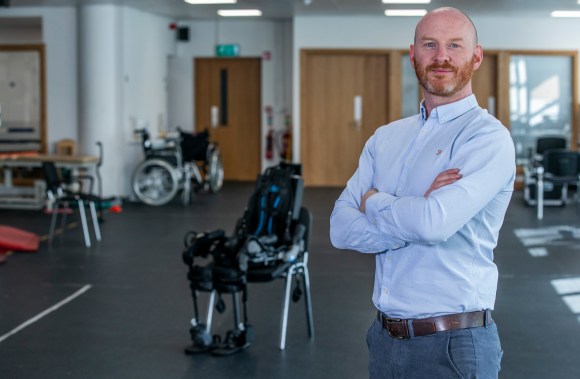
Ronan Langan is a Neurological Physiotherapist specialising in Spinal Cord Injury. He has a particular interest in rehabilitation technologies and medico-legal projecting lifelong client technology and rehabilitation needs. He worked as a Senior Physiotherapist for 12 years until 2019 at the National Rehabilitation Hospital (NRH) Dublin. He joined DCU as clinical lead of the DCU Exoskeleton Programme. He is currently a candidate in the Professional Doctorate in Elite Human Performance with DCU’s School of Health and Human Performance.
Carolyn Jones, Anatomical Concepts (UK) Ltd.
 Carolyn Jones has been Anatomical Concepts’ Director for the UK and Ireland since 2017. This new role was developed to work with the Company Directors to develop and implement the long term vision for the company based on a thorough understanding of the products, partners, client needs and the economic environment. She works closely with contracted staff, product partners, therapy partners and professional services to achieve this vision through effective forward planning, system and process documentation and implementation, training, and live events / tours.
Carolyn Jones has been Anatomical Concepts’ Director for the UK and Ireland since 2017. This new role was developed to work with the Company Directors to develop and implement the long term vision for the company based on a thorough understanding of the products, partners, client needs and the economic environment. She works closely with contracted staff, product partners, therapy partners and professional services to achieve this vision through effective forward planning, system and process documentation and implementation, training, and live events / tours.
Nuša Sušnik
 Nuša Sušnik is a highly experienced Director of Marketing and Sales with wide experience in corporate managerial positions. Extremely strong in business development in new markets with strong background in FMCG as well as highly technological companies, latest focus in MedTech industry. She graduated from University of Ljubljana, Slovenia.
Nuša Sušnik is a highly experienced Director of Marketing and Sales with wide experience in corporate managerial positions. Extremely strong in business development in new markets with strong background in FMCG as well as highly technological companies, latest focus in MedTech industry. She graduated from University of Ljubljana, Slovenia.
Marcin Uszynski PhD
 Marcin is a Senior Chartered Physiotherapist in Neurology and a Clinical Lead Physiotherapist in Axon Rehab. He worked in public, private and community settings in Poland (5 years) and Ireland (15 years), in the areas of neurology, neurorehabilitation and musculoskeletal physiotherapy. He has gained his clinical experience working with patients with multiple sclerosis, stroke, motor neuron disease, Parkinson’s disease, spinal cord injury and mobility problems.
Marcin is a Senior Chartered Physiotherapist in Neurology and a Clinical Lead Physiotherapist in Axon Rehab. He worked in public, private and community settings in Poland (5 years) and Ireland (15 years), in the areas of neurology, neurorehabilitation and musculoskeletal physiotherapy. He has gained his clinical experience working with patients with multiple sclerosis, stroke, motor neuron disease, Parkinson’s disease, spinal cord injury and mobility problems.
In 2014 Marcin completed his PhD by research at the University of Limerick. From 2008 until 2019, Marcin worked as a Lead Clinician in Multiple Sclerosis Ireland in Galway. Marcin also worked as a part-time lecturer in Physiotherapy and Clinical Tutor to students at the University of Limerick.
In November 2020 he took on the role of Lead Clinician with Axon Rehab bringing his vast experience in neuro rehabilitation and advanced rehab technology to a ‘first of it’s kind’ practice in Ireland.
Marcin is an author and co-author of several papers investigating the benefits of exercise and technology in neurological conditions. Marcin is a member of the Irish Society of Chartered Physiotherapists (ISCP), the Rehabilitation in MS, the European Network for Research and Best Practice (RIMS) and the Physiotherapists Interested in MS (PIMS). Marcin is also a Tutor on the Physiotherapy Assistant course, a Bobath Therapist and a Clinical Supervisor for students. Since 2019, Marcin is registered with CORU- Ireland’s multi-professions health regulator.
Click here for further details.
Paul Reid
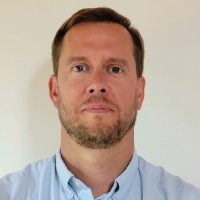 Paul Reid has been a product specialist with Irish Healthcare Equipment supplier Lyncare since 2007. He is a member of the Institute of Project Management.
Paul Reid has been a product specialist with Irish Healthcare Equipment supplier Lyncare since 2007. He is a member of the Institute of Project Management.
Paul is the vital link between manufacturer, clinician and end user. He provides detailed product training and ongoing support to all Lyncare customers at all stages of product use.
Dr. Michael Poschmann
 Michael Poschmann is Head of Department of the Specialist Centre for Paediatric and Neuro-Orthopaedics at the Schoen Clinic, Munich, Germany. He was named 2022 Top Medical Expert in Orthopaedics by the German Magazine Focus.
Michael Poschmann is Head of Department of the Specialist Centre for Paediatric and Neuro-Orthopaedics at the Schoen Clinic, Munich, Germany. He was named 2022 Top Medical Expert in Orthopaedics by the German Magazine Focus.
Bettina Quentin
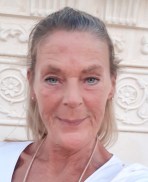
Bettina Quentin is a Physiotherapist with decades of international experience having worked in the Middle East as well as several European Countries. She worked with individual clients as well as multidisciplinary therapy lead in a large clinical setting. She specialises in neurological physio rehabilitation.
Christiane Knorr
 Christiane Knorr is an Occupational Therapist with many years of experience working with neurological patients, especially those with brain injuries. She is Deputy Therapy Lead in Therapiezentrum Burgau, Bobath Supervisor, and specialises in device-assisted therapy. During the course of her work, she has treated several Irish patients with severe Acquired Brain Injury (sABI) who attended the Burgau therapy centre.
Christiane Knorr is an Occupational Therapist with many years of experience working with neurological patients, especially those with brain injuries. She is Deputy Therapy Lead in Therapiezentrum Burgau, Bobath Supervisor, and specialises in device-assisted therapy. During the course of her work, she has treated several Irish patients with severe Acquired Brain Injury (sABI) who attended the Burgau therapy centre.
Olive Lennon
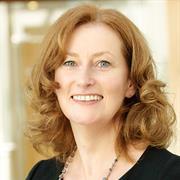
Olive Lennon is an Assistant Professor and the Associate Dean for Postgraduate Research Education at the School of Public Health, Physiotherapy and Sports Science in UCD. She has over 20 years of clinical experience as a physiotherapist in Ireland and in the US, with a specialism in neurorehabilitation. Before joining UCD in 2012, she held senior clinical posts in neurorehabilitation and an academic post at RCSI. She was the recipient of an HRB Research Fellowship (2007 -2011) exploring the adaptation of the cardiac rehabilitation paradigm to the stroke population focussed on healthy lifestyle after stroke. She received a University Award for Teaching Excellence in 2021 and has an MSc in Health Informatics. Her research interests include: Lifestyle interventions in chronic disease management and preventive medicine; Technology applications in neurorehabilitation and Neuropathic pain in Spinal Cord Injury. She is the current chairperson of INSsPiRE, an international network of stroke secondary prevention researchers and is the Principle Investigator on an EU funded project PROGAIT and a Science Foundation Ireland Frontiers for the future award 3Rs (Responsive, Rehabilitative Robotics), both of which explore the potential of neural biosignals during robotic walking.
Supporters and Sponsors
Funded by:
Sponsored by:
Supported by:
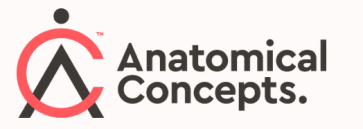
About
Severe Acquired Brain Injury (sABI)
A brain injury that involves a long period of unconsciousness (coma) and a prolonged disorder of conscience (PDOC). Persons with an sABI are very highly dependent, are often non- or minimally-verbal, and require, in most cases, life-long support with basic activities of daily living (ADL) as well as life-long rehabilitation.
The An Saol Foundation CLG
The An Saol Foundation was established in 2014 to provide adequate support to those with severe Acquired Brain Injury (sABI). It is a registered charity and a company limited by Guarantee. The Company operates from its headquarters in Dublin and delivers its services in Dublin and beyond. The services are primarily designed to help survivors of sABI who no longer have acute medical needs, as well as to provide support and information for their families and friends. To achieve its goals, the Foundation promotes awareness about sABI and neurological rehabilitation, supports research, delivers neurological rehabilitation services, raises funds, and engages in other, related support activities.
Having met with a number of affected families in September 2016, the Minister of Health, Simon Harris, T.D., announces funding for An Saol’s proposed demonstration pilot project at the National Carers’ Conference in Croke Park, Dublin, in January 2017.
In January 2020, the An Saol Foundation opened their Day Rehabilitation Centre in Santry as a three-year demonstration pilot project supported by the Health Service Executive (HSE). It aims to connect recent scientific research with the practice of neuro-rehabilitation. It offers targeted individual therapies, including OT, Physio, and SLT, as well as social rehabilitation activities to those with a sABI as well as their families and circle of support.
Following the implementation of the pilot project, the An Saol Foundation is planning the construction of a permanent life and living space for those with a sABI, covering community outreach, day rehabilitation, respite and residential care.
7 Airvista Office Park,
Santry, Dublin 9,
D09 YX84.
Tel. +353 (1) 862 2716
Email: info@ansaol.ie
www.ansaol.ie
www.neurorehabcentre.ie
Welcome to the An Saol Project 2022
On Nuacht (RTE One) and TG4
Iron-Month 2022 – Annual Fundraiser
